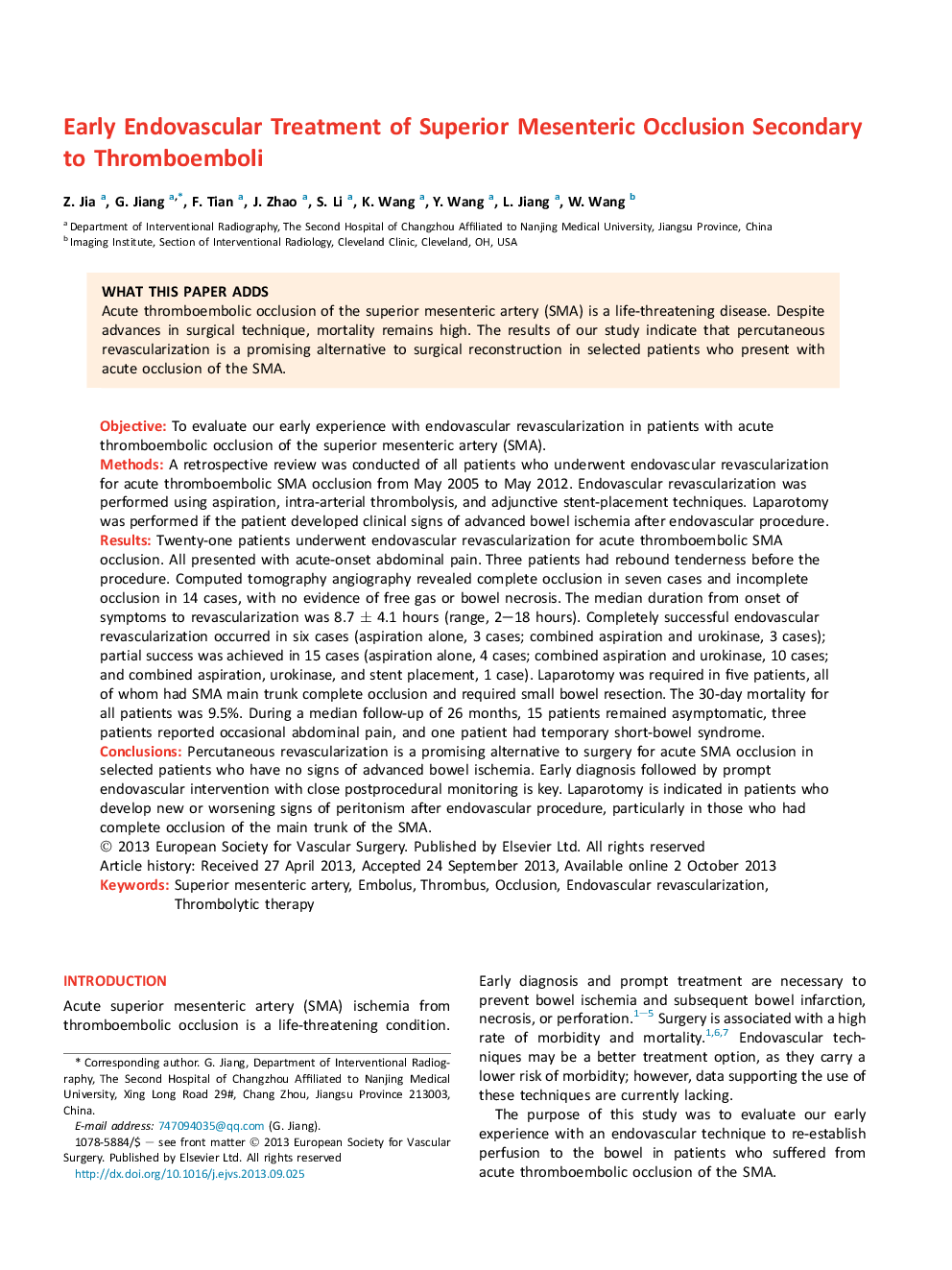| کد مقاله | کد نشریه | سال انتشار | مقاله انگلیسی | نسخه تمام متن |
|---|---|---|---|---|
| 5958521 | 1575457 | 2014 | 8 صفحه PDF | دانلود رایگان |
ObjectiveTo evaluate our early experience with endovascular revascularization in patients with acute thromboembolic occlusion of the superior mesenteric artery (SMA).MethodsA retrospective review was conducted of all patients who underwent endovascular revascularization for acute thromboembolic SMA occlusion from May 2005 to May 2012. Endovascular revascularization was performed using aspiration, intra-arterial thrombolysis, and adjunctive stent-placement techniques. Laparotomy was performed if the patient developed clinical signs of advanced bowel ischemia after endovascular procedure.ResultsTwenty-one patients underwent endovascular revascularization for acute thromboembolic SMA occlusion. All presented with acute-onset abdominal pain. Three patients had rebound tenderness before the procedure. Computed tomography angiography revealed complete occlusion in seven cases and incomplete occlusion in 14 cases, with no evidence of free gas or bowel necrosis. The median duration from onset of symptoms to revascularization was 8.7 ± 4.1 hours (range, 2-18 hours). Completely successful endovascular revascularization occurred in six cases (aspiration alone, 3 cases; combined aspiration and urokinase, 3 cases); partial success was achieved in 15 cases (aspiration alone, 4 cases; combined aspiration and urokinase, 10 cases; and combined aspiration, urokinase, and stent placement, 1 case). Laparotomy was required in five patients, all of whom had SMA main trunk complete occlusion and required small bowel resection. The 30-day mortality for all patients was 9.5%. During a median follow-up of 26 months, 15 patients remained asymptomatic, three patients reported occasional abdominal pain, and one patient had temporary short-bowel syndrome.ConclusionsPercutaneous revascularization is a promising alternative to surgery for acute SMA occlusion in selected patients who have no signs of advanced bowel ischemia. Early diagnosis followed by prompt endovascular intervention with close postprocedural monitoring is key. Laparotomy is indicated in patients who develop new or worsening signs of peritonism after endovascular procedure, particularly in those who had complete occlusion of the main trunk of the SMA.
Journal: European Journal of Vascular and Endovascular Surgery - Volume 47, Issue 2, February 2014, Pages 196-203
